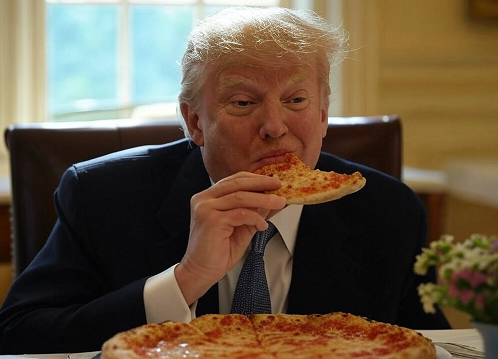
ADVERTISEMENT
Strange but True! The Weird Rules White House Chefs Have to Obey
The White House kitchen operates under a unique set of rules and traditions, many of which are designed to ensure the safety, efficiency, and discretion required when serving the President of the United States and their guests. While some of these rules are practical, others are rooted in tradition or security protocols. Here are some of the “weird” or lesser-known rules that White House chefs have to follow:
1. No Garlic or Strong-Smelling Ingredients
One of the most famous rules is that White House chefs are often asked to avoid using garlic, onions, or other strong-smelling ingredients in their dishes. This is to ensure that the President and their guests don’t have bad breath during meetings or public appearances.
2. No Poppy Seeds
Poppy seeds are banned from White House kitchens because they can cause false positives on drug tests. Given the high-security environment and the need for the President and staff to pass regular drug tests, this rule is strictly enforced.
3. No Shellfish or Rare Meat
To avoid the risk of foodborne illnesses, White House chefs are often instructed to avoid serving raw or undercooked meats, including shellfish like oysters. This is especially important when serving the President, as their health is a top priority.
4. No Leftovers for the First Family
Leftovers are generally not served to the First Family. This is partly for security reasons, as food that has been sitting out could potentially be tampered with. Freshly prepared meals are always preferred.
5. Tasting and Security Protocols
All food prepared for the President and their family must be tasted by a member of the kitchen staff before being served. This is to ensure the food is safe and free from contaminants. Additionally, all ingredients are carefully screened and sourced from trusted suppliers.
6. No Personal Recipes Without Approval
White House chefs cannot introduce personal recipes or new dishes without prior approval. The menu is carefully planned and often reflects the preferences of the First Family, as well as dietary restrictions or cultural considerations.
7. Strict Dietary Restrictions
The White House kitchen must accommodate the dietary preferences and restrictions of the First Family and their guests. For example, if the President or a guest is vegan, gluten-free, or allergic to certain ingredients, the chefs must adjust their menus accordingly.
8. No Food Gifts from Outsiders
The White House chefs are not allowed to use or serve food gifts sent to the President by outsiders. These gifts are considered a potential security risk and are typically donated or discarded.
9. Historical and Cultural Sensitivity
When preparing meals for state dinners or international guests, the chefs must be mindful of cultural and religious dietary laws. For example, pork might be avoided when serving guests from certain countries, or kosher meals might be prepared for Jewish guests.
10. No Social Media or Public Disclosures
White House chefs are required to maintain strict confidentiality about the First Family’s eating habits, preferences, and any special requests. They are not allowed to share details about meals or recipes on social media or in interviews without explicit permission.
11. Always Prepared for Last-Minute Changes
The White House kitchen must always be ready to accommodate last-minute changes to the menu or guest list. This requires chefs to be highly flexible and prepared to cook under pressure.
12. No Alcohol Without Approval
While wine and other alcoholic beverages are often served at state dinners, the use of alcohol in cooking or serving must be approved in advance, especially if the President or their family abstains from alcohol for personal or religious reasons.
13. Food Presentation Must Be Impeccable
Every dish served at the White House must be visually stunning. Presentation is key, as meals are often photographed and scrutinized by the media and the public.
14. No Waste
The White House kitchen emphasizes sustainability and minimizing food waste. Leftovers from state dinners or large events are often donated to local shelters or repurposed for staff meals.
15. Historical Recipes Are Honored
The White House chefs are expected to honor and preserve historical recipes that have been served in the White House for decades. For example, dishes like Kennedy’s clam chowder or Lincoln’s favorite cake might make an appearance during special occasions.
ADVERTISEMENT
These rules reflect the unique challenges of cooking in one of the most high-profile and secure environments in the world. White House chefs must balance tradition, security, and the personal preferences of the First Family while maintaining the highest standards of culinary excellence.
Ok
I have already read this and decided that I never want to be a chef for the White House and I don’t want to read it again thank you
Wow!! Poor the chefs how be complicated be chefs for the white house..and this moment..